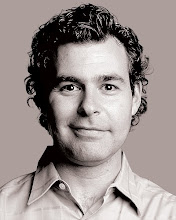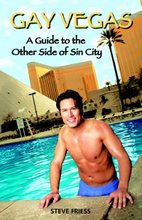
As you can see, the campaign managers for U.S. Sen. Harry Reid and two of the Republicans seeking to unseat him this year, Sue Lowden and Danny Tarkanian, were getting together to chat about media coverage of campaigns. Cool, right? Except then there's this part:

Let's see if I get this straight. The Society of Professional Journalists, protectors of press freedoms and openness, is holding an event with three major political figures and they've granted a blanket of privacy to them? And the acting dean of the UNLV journalism school is not just endorsing but presiding over this?
I'm not the only one who finds this weird and unsavory. Two of my favorite experts from the Poynter Institute, a highly regarded journalism think-tank in Florida where I've won two scholarships in my career to attend sessions, agree. Kelly McBride wrote back succinctly: "I think it's BS for such an event to be off the record." And her colleague, Bob Steele, wrote me: "I can't think of any good reason I would agree to those terms for this type of session, but I'd like to know what they mean by that term in this case, and I would like to know WHY they've agreed to such a standard."
Right. WHY. Why would these people get such a significant promise? I asked Charlie Zobell, the managing editor at the Las Vegas Review-Journal, longtime instructor at the UNLV j-school and coordinator of this event. (Disclosure: He was also my boss from 1996-99.) His response:
After many previous elections, we have invited political consultants and campaign managers to critique local coverage. This is the first time we have asked them to give us their views at the beginning of the election cycle. We definitely thought they would be more forthcoming and the discussion would be of greater value to us if the meeting itself were not covered as a news event.
I discussed their request with other members of our local chapter before agreeing to the arrangement. Anyone who attends is free to try to interview the panelists after the meeting.
Yeah, I figured this was the logic, that the participants "would be more forthcoming." Except what does that mean? These are seasoned political professionals. One of them is the political director for the most powerful Democrat in Congress. They're also competing. What kind of information could or would they impart? And what awkwardness is this going to create should they actually say something of value?
Try this. Suppose Harry Reid's guy says, "We know the R-J is out to get us and so we're going to only give interviews to the Sun." Wars between major politicians and major news outlets is news and if you don't believe me, see Obama v Fox. The public needs to know that! But nobody can report it? And later, when it comes to be an evident strategy, the reporters who were there are in the awful situation of still not being allowed to observe it because maybe they wouldn't have had anything more than a hunch but for the fact that the strategy was essentially confirmed at this session?
The promise of "off the record" is supposed to be very special. It's something that journalists are really only supposed to agree to when they think they might get some important information that is crucial to the public that advances a story. We usually let sources we know go there more than we should, but that's because of long-term relationships. Typically, if information provided off-record can be confirmed by other sources, it can be published but not attributed.
In this case, however, it's being used precisely in the opposite manner. It's being granted to highly trained political hands who are the savviest in the state at dealing with journalists. And whatever they say is actually supposed to be locked away in a vault.
This is very, very bad role-modeling for UNLV students. Like Steele, I find it hard to imagine what information would be imparted that would be worth this bargain. And it's terrible precedent for SPJ, which will now have to explain to future panelists why they, too, don't get the deal.
Also, as longtime UNLV journalism professor Mary Hausch noted to me today, it's unenforceable. She wonders if SPJ will make attendees sign something or swear an oath. Would a journalist organization actually forcibly remove someone who refused to agree to these terms? Can you imagine? And the rest of the "journalists" there wouldn't report THAT?
"It is highly unusual to have a meeting that is off-the-record in its entirety and, from a practical standpoint, I'm not sure how you can guarantee that to the speakers," Hausch said.
You can't. Someone can Tweet it or put it on YouTube or post it to a blog anonymously or send the information to someone unemcumbered by the promise made on their behalf, like me. Then, if it's really newsworthy, the rest of the participants will either have to cover it or be derelict reporters.
And you know who knows that better than anyone? The three political dudes who negotiated this awesome arrangement. While Zobell says that they're now being provided a space to be more candid and open, these guys know there's no such thing. They're never going to tell even a roomful of sworn-to-secrecy-journalists what they'd tell one another over drinks or what they'd advise their clients. And they're sure as sugar never going to say anything useful that their opponents' strategists can use.
That is precisely WHY these events are more useful in post-mortem and not in the thick of a developing story when participants still have so much to gain or lose. And if this is a good time to do this because it's right when it's all ramping up, then go get the strategists of the LAST election, who can be honest and sober and uncompromised.
So SPJ has given away the journalist's most precious negotiating card, set a terrible precedent for itself and set a very bad example for the students for ... nothing. That's really a shame.
P.S. It's not clear it matters anyway. The event is Saturday and all of the top political journalists in Nevada are likely to still be in Carson City covering the Nevada Legislature's special session. But even if they weren't, which one of them worth their salt would attend such an event and risk being compromised as I've described?








6 comments:
ugh, disturbing to say the least. The current nature of media and politics in the 21st century needs some seriously strong voices to get beyond the issues that are plaguing it. I'm glad to be a reader of your blog as I continue to see you working to move beyond the underhandedness of situations such as this and work to maintain the standards that journalism wsa built on.
As a journalist for 40 plus years and an SPJ member since 1978 in Kansas and Florida, I find this reprehensible. I agreed to this once for an SPJ meeting in the early 80s and wished I hadn't. It sets a terrible example, sends a miserable message and is anathema to most of what SPJ stands for. Frankly, if I was in that chapter, I'd either insist it be open or scrub the meeting.
Like the newspaper industry generally, SPJ has lost its bearings in recent years. I quit the outfit back when they gave Judy Miller an award.
The event is canceled. So no skin off anyone's nose. But, I think Mr. Zobell's rationale is sound enough. It's the beginning of the election cycle. These politicos probably would NOT have agreed to sit as a panel if their discussion were ON the record, duh...so what Steve here suggests,(Oh, and let me tell you how impressed we all are with your Poynter credentials! Really, sir?) is that if the discussion were not on the record it would somehow not be a valuable journalistic endeavour...that it would violate holy tenets, etc...etc...Bullshit. I can name ten (and I never even watched a Poynter webinar) Washington correspondents who trade their souls every Friday afternoon for a Sunday story and no one bats an eye...those oh so savvy politicos...got our numbers...I digress.
Getting college kids together with professional journalists and professionals covered by journalists could, done respectfully, be a valuable educational tool and perhaps even help build the kinds of relationships that would help future election coverage...and all that easily lends itself to paying dividends to readers later...and that is what it's all about in the long run...so to insinuate with this cute headline, and this really kind of stinky post, is that there was going to be some super Jedi mind trick cover-up of the Nevada Senate race because of this meeting, and, lo and behold the irony, THAT says more about what is wrong with "journalism" than the subject of your post.
Las Vegas Editor
LVE: Had I not disclosed that I've received scholarships from Poynter, you could have accused me of not disclosing a potential conflict. Believe me, I don't need to bolster my credibility on journalism issues. My vast body of work is available to be judged.
It is true that many reporters misuse off-the-record dealings. That doesn't mean that educators and journalism organizations ought to endorse that. And there is no reason why you can't "get college kids together with professional journalists and professionals covered by journalists" and have it be both on-the-record and productive. The exercise you referenced, source-building, is not something that legit journalists do in front of other legit journalists, it occurs over time through personal contact.
If THAT was the point of this, the political experts weren't needed; the students could just listen to a panel of professional journalists discussing how they cultivate sources. That's a terrific idea for a seminar.
But, hey, I'll cop to a too-cutesy headline. That's not my strong suit. I understand Zobell's view and motives and I don't believe he had any nefarious intent, but the idea of such an event with these people being off-record was just a bad idea for the many reasons I argued.
Thank you Steve for putting SPJ back on track. Let's hope when it is rescheduled, because this theater begs for an audience, they will take off that dumb disclaimer. BTW, I would just ignore them anyway and they probably know that!
Post a Comment